Pam Miller’s date kept canceling.
“I wasn’t exactly sure what was going on,” Miller ’84 said. “I thought I might be getting a run for my money.”
Miller wasn’t being stood up, though. Her date had a valid excuse. He was following the 1981-82 St. Joe’s men’s basketball team that kept winning and advancing in the East Coast Conference.
The Hawks went on to win the ECC and earn a bid to the NCAA Tournament. Pam’s date, Joe Lunardi ’82, was covering the beat for the school paper, The Hawk, and rescheduled the date after the team’s first-round exit against Northeastern.
“We didn’t get together until April 1,” said Pam, now Pam Lunardi.
Forty years later, Joe Lunardi is synonymous with March Madness itself.
The 63-year-old Lunardi is known as “Joey Brackets,” the nickname he earned as the longtime ESPN personality who coined the term “bracketology” with his ongoing in-season predictions for which teams would make the men’s NCAA Tournament, as well as which teams were on the bubble and which teams were out. Hearing his name this time of year is as common as a “Go Birds” on a fall Sunday.
‘Majoring in college basketball’
With two older brothers who were Hawks, Lunardi was familiar with the school long before he became a student himself. Some of his earliest memories featured his brother, Henry Lunardi ’67, who played in the St. Joe’s band, babysitting him during a game in the late 1960s.
“He went and played in the band, and I watched the game by myself. I sat with my little program, kept stats or whatever,” Lunardi said. “Who knew that 50 years later, I’m still doing the same thing?”
Once Lunardi arrived on campus nearly a decade later in 1978 as a public administration major, he was more known for his street hockey skills than his writing chops. But he had dreams of working for Sports Illustrated.
“I didn’t know it then, but I was majoring in college basketball,” Lunardi said.
The St. Joe’s band once again played a role in jump-starting his career when Lunardi began working for the Hawk Newspaper.
“Typically, the sports editor [Owen Patterson ’80] covered the basketball team because it was a beat that people cared the most about, right? Well, he was the drummer, and he wanted to be the drummer,” Lunardi said. “He asked me to take basketball as a freshman, so I was the basketball beat writer for four years.”
Lunardi’s early hustle didn’t go unnoticed by staffers, like then-athletic director Don DiJulia ’67, who now serves as a special assistant to the president.
“There was a willingness to do his best, to jump in, to be as expressive and communicative as he is,” DiJulia said. “Certainly that went a long way in launching his career and what he’s doing now.”
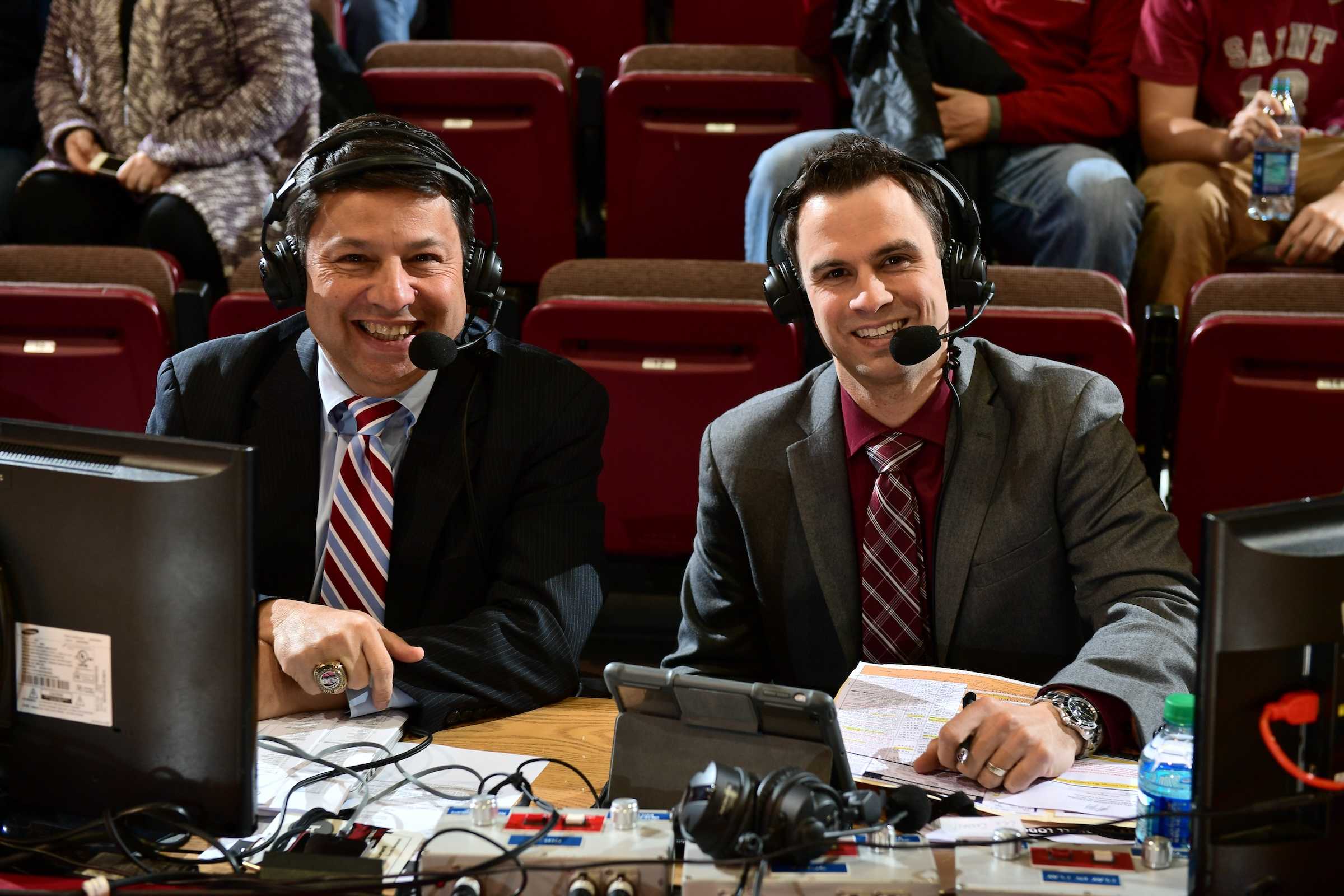
‘Seat of my pants’
By the time he graduated in 1982, Lunardi was working as a freelance sportswriter. He returned to St. Joe’s to work in admissions before a stint at Temple for several years. Finally, he returned to St. Joe’s in 1987 and worked his way up to vice president for marketing and communications.
“I learned how to be a PR guy by the seat of my pants,” Lunardi said. “Thirty-some years later, we had a 20-person marketing communications office with a web staff and digital communication staff and the printed St. Joe’s magazine and all of our advertising and our image campaign and branding.”
True to his roots
Shortly after his return, St. Joe’s launched its radio network, the St. Joseph’s Sports Network, in 1990.
“That gave him early experience to polish up his approach and gave him another reason to be in touch with athletes or coaches immediately,” DiJulia said.
But even while working in the university’s marketing department, Lunardi said he “never really stopped being a sportswriter.” He was also contributing to the Blue Ribbon College Basketball Yearbook on the side as well, which gave way to his career in bracketology.
In 1995, the Blue Ribbon added a postseason NCAA Tournament guide, and thus bracketology was born.
“I just laugh,” former St. Joe’s coach Phil Martelli said, “because there was a guy who took his passion for basketball, his intellect for numbers, figured out the system that the NCAA was using and created this world where he’s known as the bracketologist.
“I’m not a cliché guy, but when they say good things should happen to good people, Joe Lunardi is good people.”
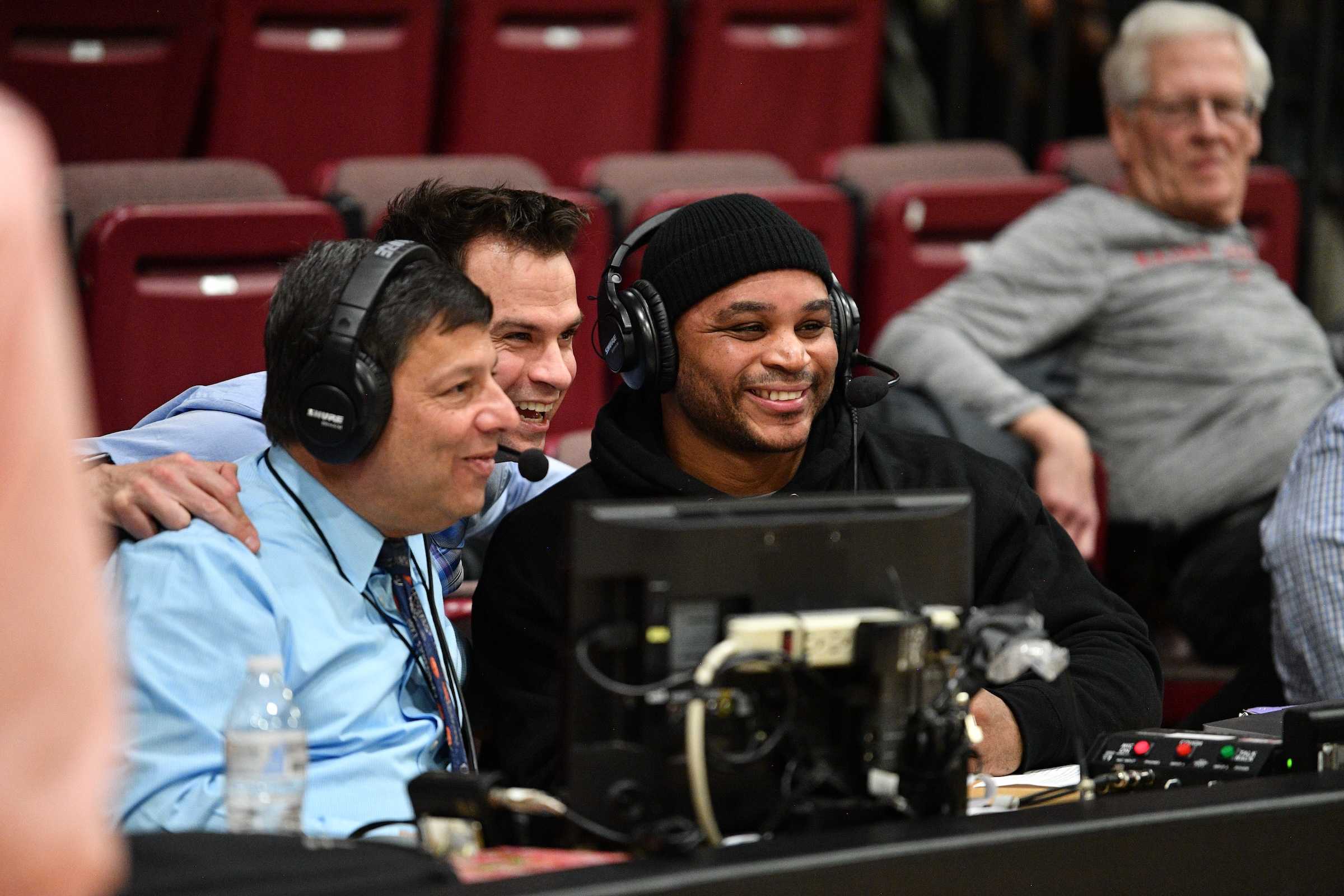
‘People took notice’
Pam Lundardi believed it was her husband’s accuracy in his predictions that enabled him to gain traction, especially given the little time he had to make the predictions and the lack of sophisticated technology when he was starting out.
“He got to be known for predicting the field of the tournament accurately, and I’m not sure anyone had really tried before. I’m not sure anybody really cared about it as much as he did,” she said. “Once he started doing it, that was [when] people took notice.”
And from there, things took off.
But even as the world changed around during Lunardi’s rise to sports stardom, Pam Lunardi said he hasn’t.
“He’s really the same person,” Pam Lunardi said. “He works unbelievably hard.”
Still a Hawk
The other thing that remained constant: Lunardi’s connection to his alma mater.
“It was just spectacular to watch because it was somewhat organic; it grew and people started talking about this bracket expert,” Martelli said. “He did all the right things. He did every radio station. He worked really hard.”
Lunardi has seen St. Joe’s through highs and lows. And despite his busy schedule, especially during this time of year, he’s still not ready to walk away from doing color analysis for a program his wife describes as “part of him.”
“I’ve thought about it many times, when should I stop doing St. Joe’s games, and I still like it too much,” Lunardi said.
Said DiJulia: “It’s like having a Bryce Harper, or a movie star, or Billy Joel or Bruce Springsteen. [In] his profession, that’s who he is. For good or for bad, it’s who he is. And where’s he from? St. Joe’s University.”
An earlier version of this article was first published by the Philadelphia Inquirer March 19 as part of the Inquirer’s college correspondent program.
















































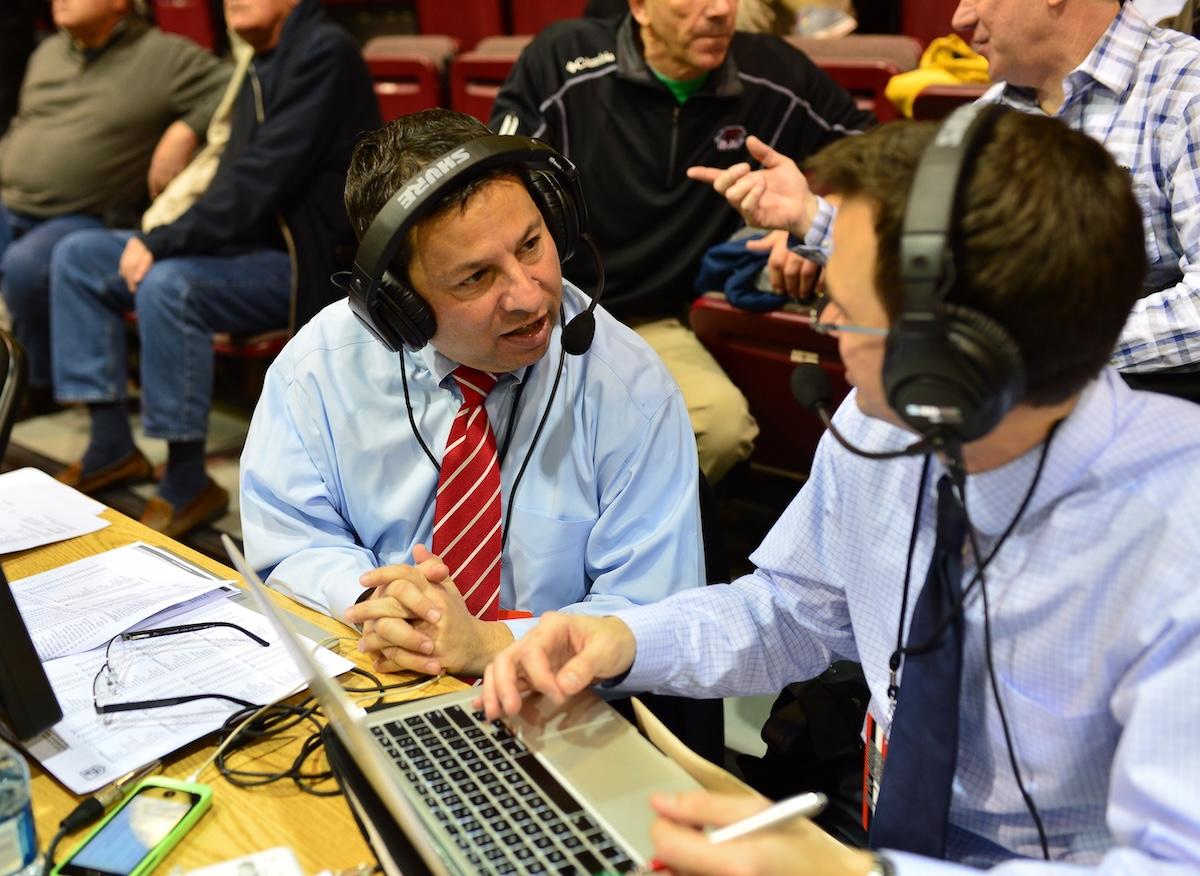
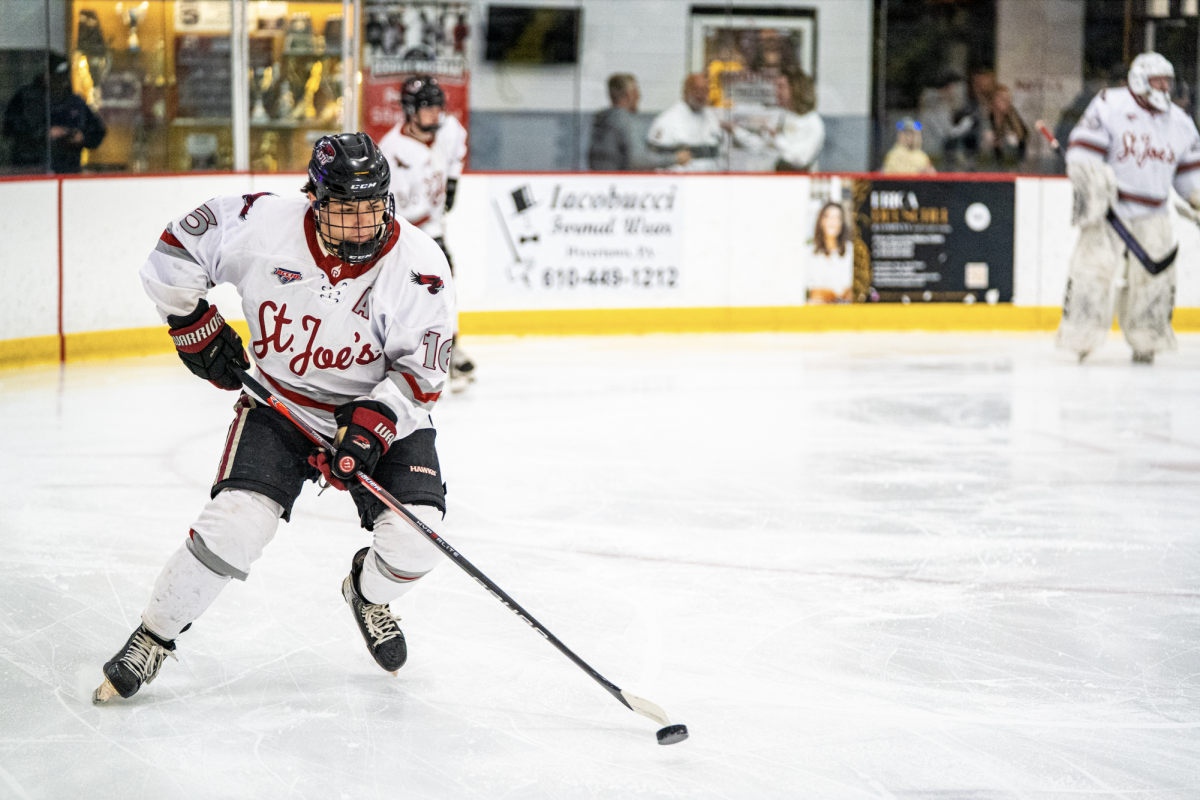
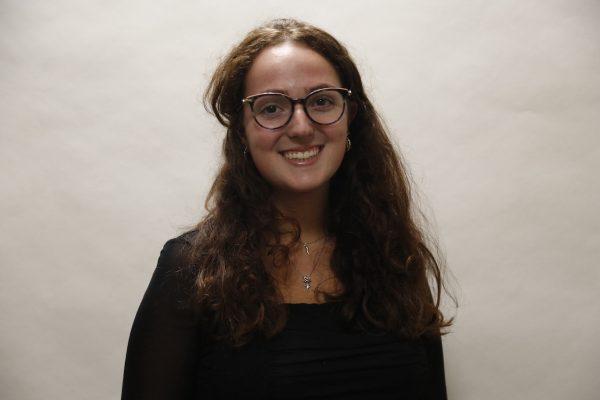
Hank Lunardi, ‘67 • Apr 30, 2025 at 8:41 pm
… and he was a cute, lovable little kid!